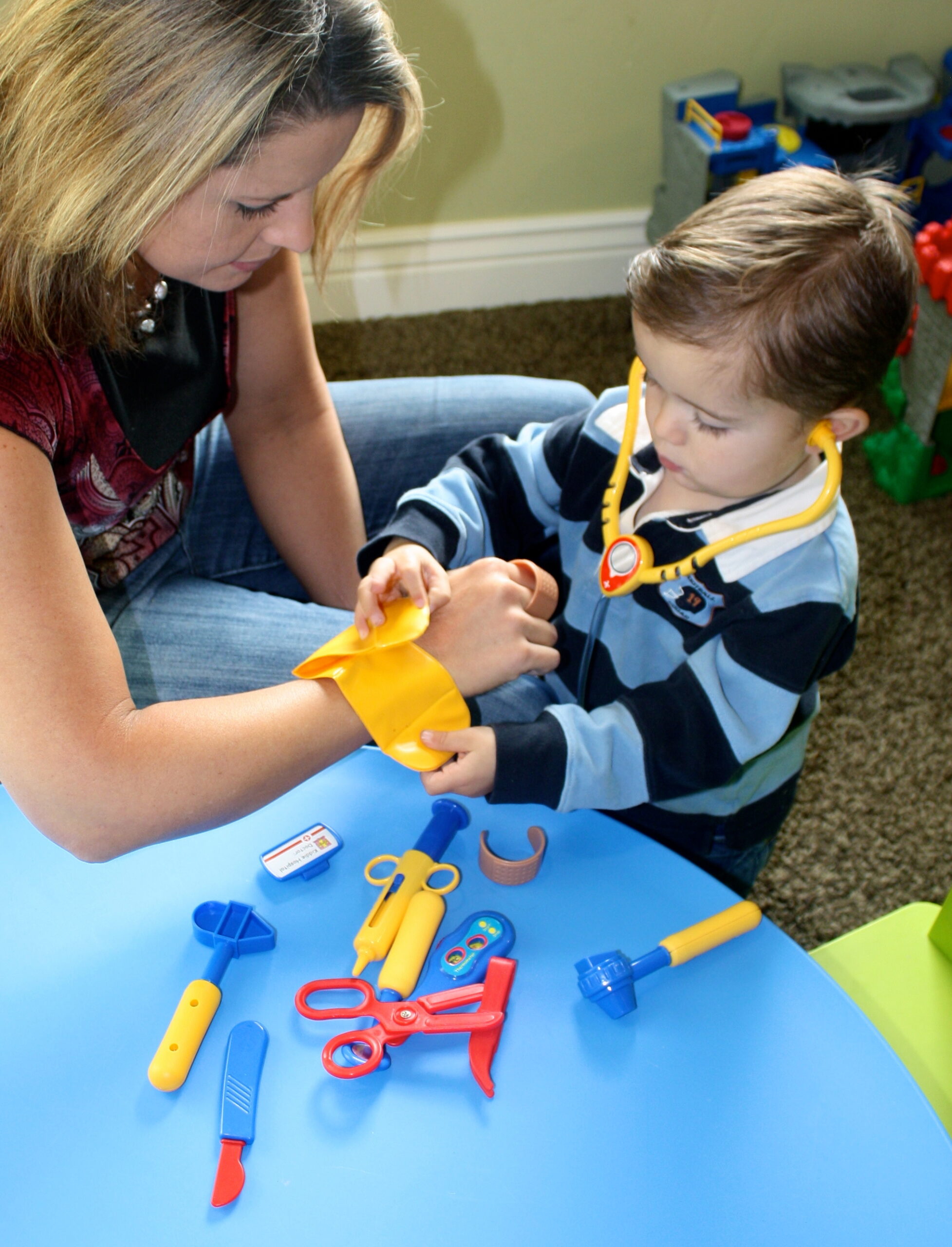When your child needs play therapy, you may be wondering what to expect. Perhaps you were told about play therapy by a friend, a teacher or a pediatrician. You love your child and want to help them but you’re not sure what play does and how it will help your child.
We completely understand that you have questions about play therapy. That is a normal feeling. We hope that this information gives you a bit of insight into what to expect during play therapy.
What Is play therapy and how does it help?
Play therapy is a developmentally appropriate way for kids to work through their feelings. Kids don’t have the cognitive skills to sit and talk through their problems. But they know how to play. A trained play therapist knows how to provide the time, tools, and opportunity for kids to play out what is bothering them, make sense of what is happening in their world, and ultimately find ways to handle their feelings in a healthier way. It sounds easy but play therapy is an evidenced based approach that helps kids feel better and provides long lasting results.
How old does my child need to be to benefit from play therapy?
Generally play therapy is most beneficial for children ages three to ten but even older kids can benefit from play therapy. As kids get older, they are able to talk more about what is bothering them but even then some kids prefer play. It is often easier for a child to express themselves through play than through words.
What do I tell my child about coming to play therapy?
Great question! Kids deserve to know what is going on and thrive on consistency and schedules. You can tell them that you met someone who is a play therapist and that you really liked them a lot and think they will too. You can tell them that once a week they will get to see their play therapist and have a special playtime. This is a special time that is just for them.
How do I know if play therapy is helping my child?
Play therapy is a collaborative treatment. In other words, you are an important part of the puzzle. Your play therapist will meet with you after every five sessions to discuss your child’s progress. You’ll start to notice positive changes at home and school and that is valuable information and insight for your play therapist. During your parent meetings, your play therapist will also give you tools as a parent that will help support what your child is doing in the playroom. And we always send our parents additional resources such as podcasts, videos, and articles to help review and reinforce what is discussed during our parent meetings. Most importantly you’ll start to notice that your child is more regulated, has a greater emotional vocabulary, has improved self-esteem, and feels more capable and competent in working through challenging situations.
When will I know my child is ready to stop play therapy?
During the parent meetings, the play therapist and parent or caregiver agree that a child is ready to stop play therapy when things are going better. In other words, there has been a significant decrease in the behaviors and concerns that brought them to play therapy. Another sign is that your child is doing well in multiple environments such as home, school, with friends, etc.
When it is time to end play therapy, you and your play therapist will make a plan about how to wrap things up and say goodbye. Children may have feelings about ending play therapy and it’s important to honor that process through a plan that everyone knows about. Your play therapist will walk you through those steps so that your child can learn how to have a happy, healthy goodbye.
How do I get started with play therapy?
Usually the first step is a free parent consultation. This allows the play therapist to meet with the parent and hear about their concerns. This also gives parents an opportunity to ask questions. At that time, the play therapist can give more information about play therapy and determine if play therapy is the best choice for the child. If parents decide to move forward, there is usually an intake session where the play therapist and parent talk in further detail to learn more about the child.
Still have questions about play therapy?
We hope that this information gives you more insight into what to expect from play therapy. If you still have questions or want to find out if play therapy is right for your child, please contact us at 832-521-8809 for a free parent consultation. We are happy to help.


